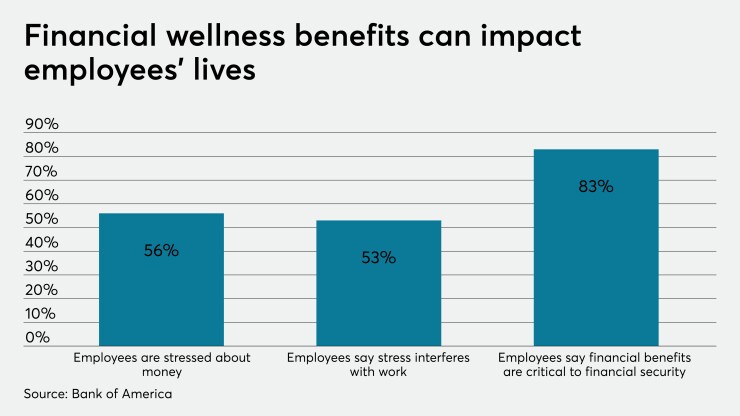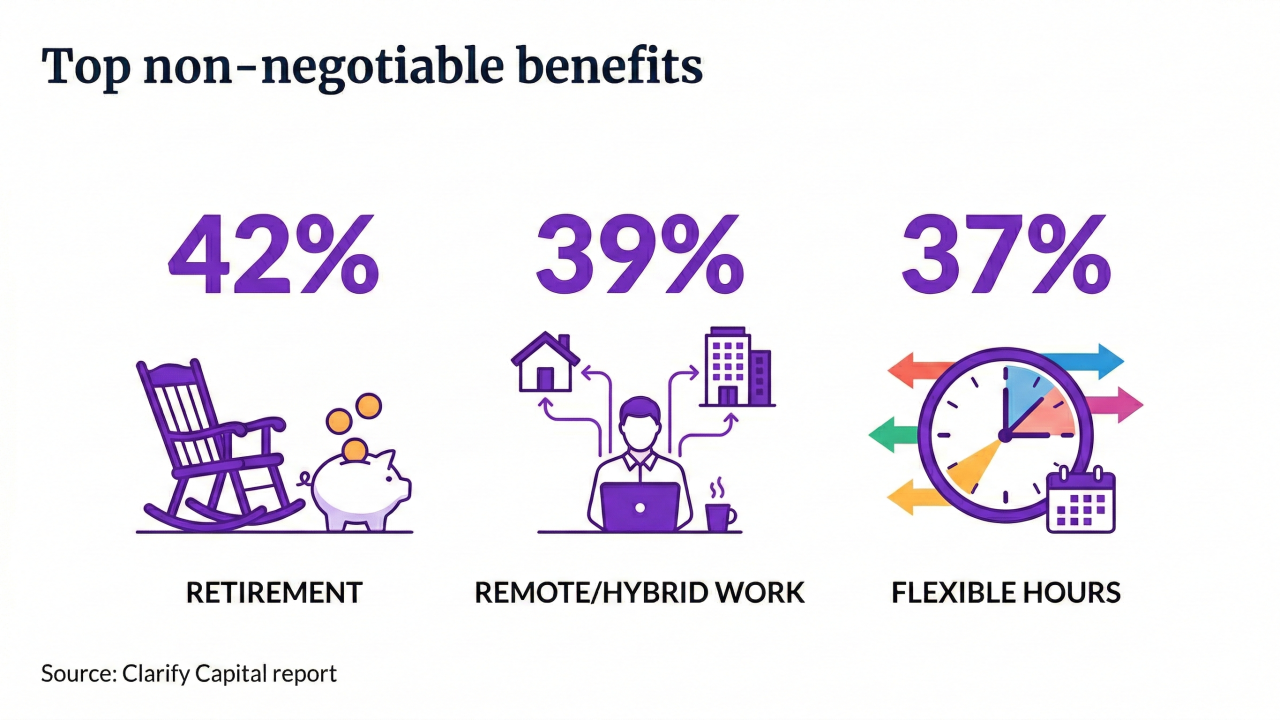Financial wellness has become the must-have benefit for 2021. Yet it appears that financial wellness doesn’t have a clear definition. It’s amorphous. It means different things to employers than it does to employees. One thing is certain: financial wellness means more than worker pay.
Active Benefits or HR professionals like yourselves may struggle to identify exactly what financial wellness package you should offer. So we need to specifically define the term. Except articulating that definition isn’t so easy. The Employee Benefit Research Institute
Read more:
Thirty-four percent defined it as “having access to assistance and resources that enable good financial decisions.” This definition is even more vague than the term itself. Thirty percent defined it as, “being comfortable/financially secure overall.” This is somewhat helpful because it speaks directly to individual workers and how they feel. We all have different ideas of what “comfort” and “security” may mean to us, but at least these are concepts that enjoy common denominators.
Twenty-one percent defined it as, “being equipped to achieve retirement security through planning and saving.” This is highly specific and helpful. However, it speaks to the future as opposed to focusing on the present, and how workers live now.
There’s another problem regarding “financial wellness” and that’s that only 23% of employers, according to the same survey, even utilize financial wellbeing metrics with their workforce. I suspect that this low percentage is due to the very fact that financial wellness is not clearly defined. How can you measure what you can’t clearly define?
On the employee side, there is also a wide definition disparity.
- 34%: Not being stressed about my finances
- 18%: Being debt free
- 16%: Having enough savings that I’m not worried about unexpected expenses
- 16%: Financial freedom to make choices to enjoy life
- 12%: Being able to meet my day-to-day and monthly expenses
- 4% : Being able to retire when I want to
Notice that employee definitions are not only widely varied, but are highly specific and address the here-and-now. The dislocation in how employers and employees even think about financial wellness makes perfect sense. Every person is different. Every person has separate and distinct values, needs, wants, desires, and backgrounds.
So instead of a granular definition of financial wellness, we must define financial wellness on a broader scale. This will, at a minimum, give everyone the same frame of reference. I characterize financial wellness as deriving from 3 simple concepts that everyone can relate to:
- Help employees live the lives they’ve earned
- Help employees fully participate in the economy they helped create
- Help employees be helped through the ups, downs, and unknowns of life
These concepts encompass everything employees said they want from “financial wellness” — from not being stressed about finances to being debt free to meeting expenses — and includes the responses employers gave, as well.
If you keep these three concepts in mind as you evaluate financial wellness benefits, you can’t go wrong. Regardless of the benefits you offer in the entire package, one benefit fulfills all three of these concepts:
Active workers need access to their earned wages on a regular basis. They need it because it puts them in control of their own lives financially. Everything — and I mean everything — flows from this kind of financial freedom.
People and economies flourish when everyone is able to fully participate. We begin by thinking about how we feel today, and what we aspire to feel each morning to come. You can make your employees’ mornings something they are thrilled to wake up to by removing the obstacles to their full participation in life and work.






